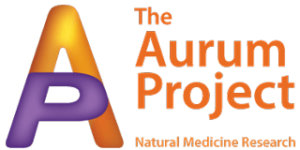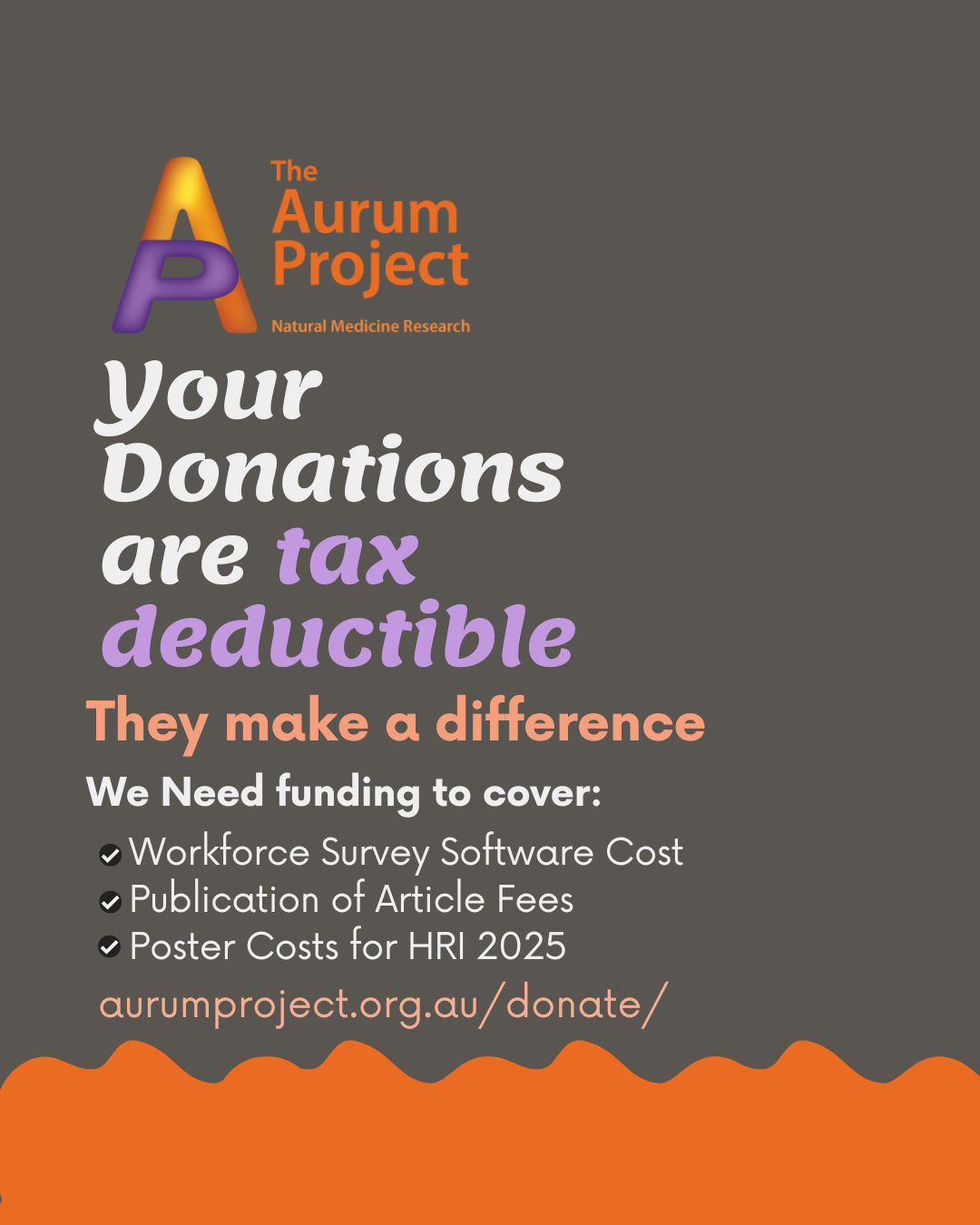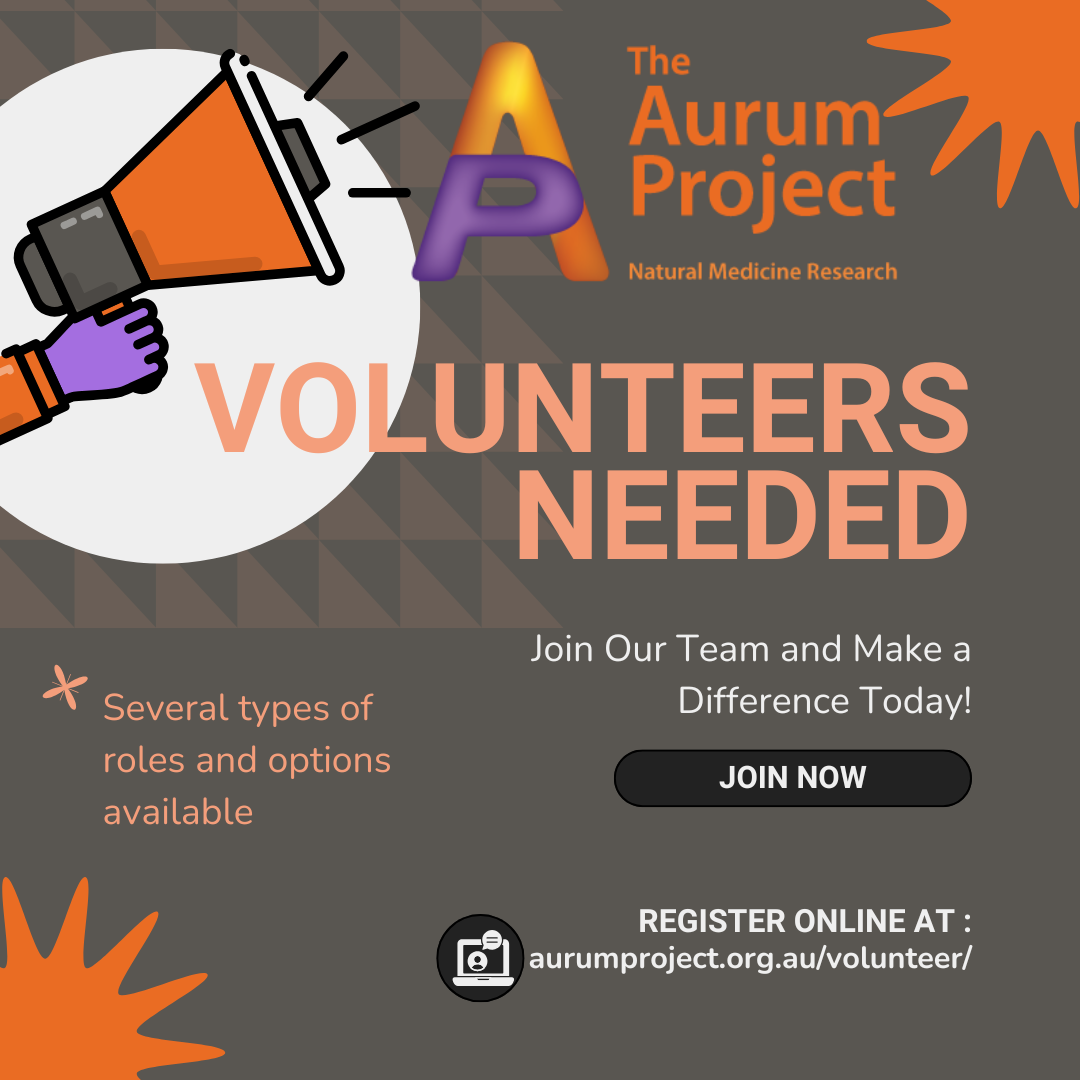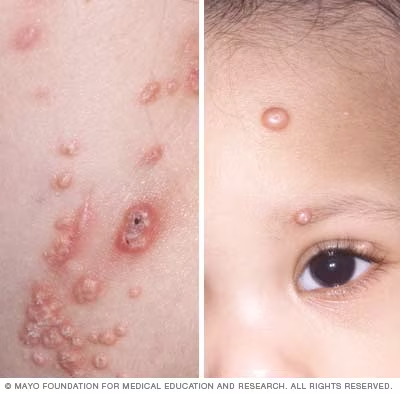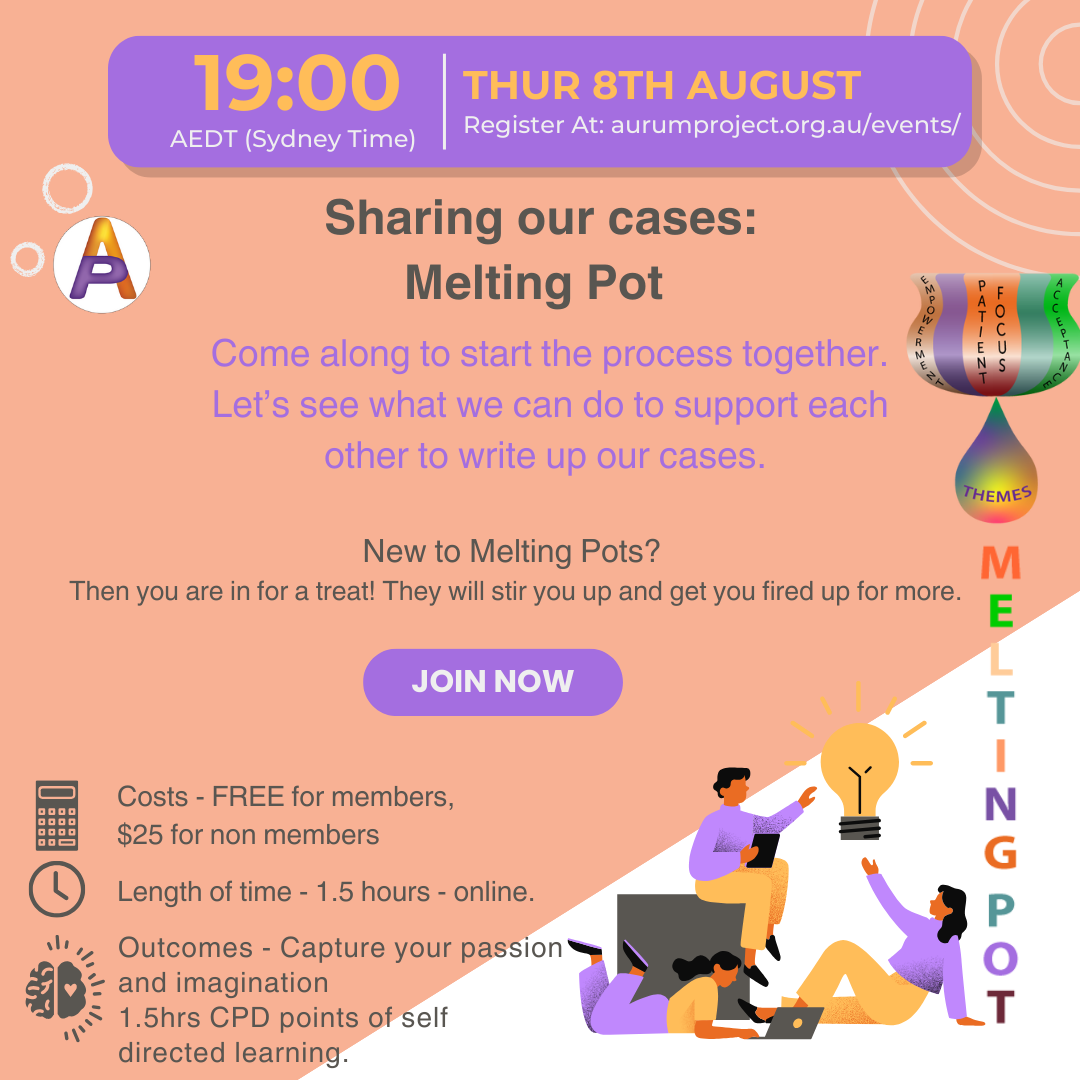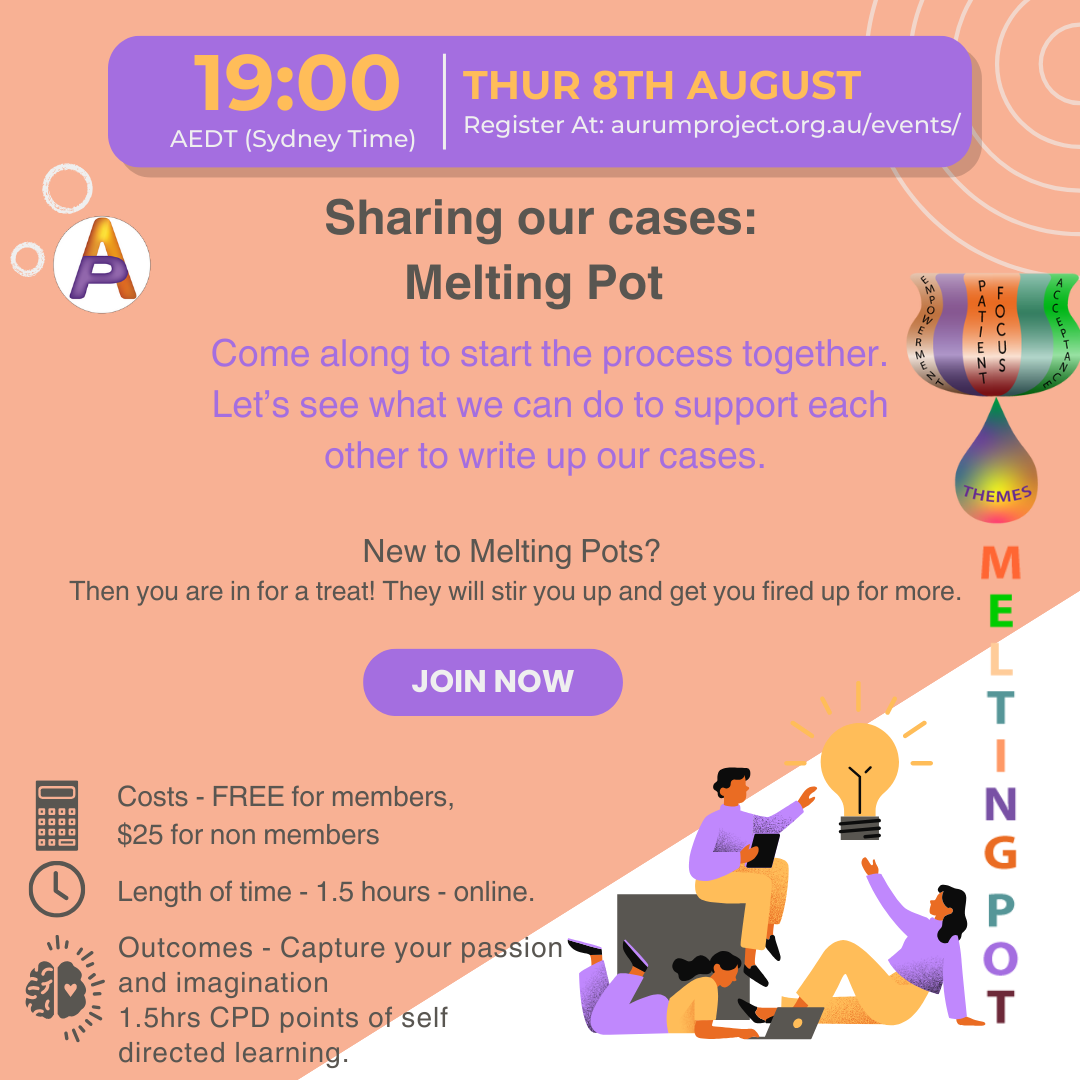February 2026
2026 Research Forecast
Conference Spotlight: 14th AHMC Brisbane
Project Milestones
- Scoping Review: We are entering the final phases of our comprehensive scoping review of homeopathy literature in Australia. This work is essential for mapping our historical and contemporary evidence base.
- UTI & Microbiome Project: Our UTI project continues to break new ground. We are currently planning a case series analysis to explore the clinical effectiveness of homeopathic treatment for Urinary Tract Infections and its impact on associated microbiome changes—a vital area of study as antimicrobial resistance rises.
- Molluscum contagiosum (MOCV) Project: This collaboration between Australia and India is on the verge of submitting its first paper for publication. The review highlights issues for practitioners treating MOCV and identifies specific challenges in treating and recording cases of molluscum contagiosum.
The 2026 Homeopathy Workforce Survey
**********************************************
December 2025
A Personal Thank You and Research Update
As 2025 winds down, I personally thank you for being an active part of our research family. Your involvement, in every way, is what makes The Aurum Project thrive!
Some highlights!:
-
You’ve Helped Map Our Profession: We successfully wrapped up the second year of the Homeopathy Workforce Survey a project we are undertaking with the Australian Register of Homeopaths (ARoH). We like to call it the LifeForce survey as it gives us vital, up-to-date insights into how homeopathy is being practiced right here in Australia. Insights about what professional homeopaths experience and feel as they practice. How they make a living. This year we expanded our reach to find professionals using the approach but not the name or title. We need your support for 2026 through to 2028 as we continue to map. Stay tuned and please take part
-
Sharing Our Identity: We’re teaming up with Barbara Roberts in New Zealand to present the ‘Australasian picture of homeopathy. This is all about clearly defining and strengthening our unique Australasian professional identity. This collaboration continues next year. We hope you can join us and continue to take the survey each year —your collective support helps the entire profession understand our contribution to the public!
-
Defining Our History: The Literature Review Pod is back on track to finish that crucial foundational study, helping us finally map out all the homeopathy research that has happened in Australia since 1990.
-
Global Collaboration in Action: A huge shout-out to the Molluscum Contagiosum Pod! This wonderful collaboration with the clinics of Dr. Sujata Naik in Mumbai and Linlee Jordan in Brookvale has been powering along. Results were shared at the HRI conference earlier this year, and the pod is on the verge of publishing an important review on this often overlooked condition in research.
-
Increasing Our Skills: We were thrilled to host our first-ever webinars with IACH this year, focusing on case taking and case reporting—these are essential skills for every professional homeopath!
-
Coming Together: We welcome members to our Cluster Session in October. It was a great chance to connect, hear directly from the Pods, share your own insights, and contribute to the bigger picture of homeopathy research. These opportunities to share our knowledge and experience support us in our clinics as well as in the research Pods. We will continue them in 2026.
Homeopathy’s Role in Global Health?
We know homeopathy has the potential to offer valuable support for big global health problems. That’s why we’re exploring and supporting initiatives to address issues like Antimicrobial Resistance (AMR) and supporting health in Low- and Middle-Income Countries (LMIC). We’re doing this actively through the clinic practice based research of the UTI Pod and by auspicing the important Solomon Islands Water Medicine project – SWIM.
Thank you once more for your passionate contribution to homeopathy research this year. We can’t wait to see what we achieve together in 2026!
*****************************************************************************
September 2026
Help Us Explore the Landscape of Homeopathy in Australia
– Join the Homeopathy Workforce Survey (HWFS) Pod.
The HWFS Pod has been running the homeopathy workforce survey project in Australia since 2024. It is an ethics approved activity and is attempting to measure and understand the extent homeopathy is professionally practiced in Australia. Who are the practitioners, what are their characteristics, and where are they, how are they working? How do they make a living? At the moment, the Pod members are Sandra Venables, Gabrielle Brodie and Celeste Salter, and previously included Michelle Hookham. We are all professional homeopaths and keen to research and understand homeopathy practices in Australia.
We are seeking someone to join us in the journey. It is a volunteer role, takes a couple of hours every week, with occasional busy patches. It does take a commitment, with your time, and we are supportive of each other when needed.
The types of activities we undertake in the Pod are
- writing, researching, referencing, editing,
- analysing survey data (both quantitative and qualitative),
- connecting what we find and exploring what it means.
Interpretation and asking new questions are also valuable skills. We spend time sharing that information back with the professional community to give a clearer picture of who we are.
We share our unique skills and perspectives, we listen, we feedback constructively and we work together to find the way forward. It is a very flowing process.
If you’re nodding along and thinking, “Yeah, I’d like to be part of that,” check out our work first: 👉 https://aroh.com.au/workforcesurvey
You’ll find our papers, reflections on why we joined, and our research protocol.
Expressions of interest:
Send an email to workforce@aurumproject.org.au and let us know about what inspires you about our project.
We look forward to hearing from you
Sandra, Gabrielle and Celeste
August 2025
Ethics is a critical part of the work we do in research. From time to time I hear people talk about ethics as a burden , as if it is getting in the way of the nitty gritty of the research project. Sometimes people talk of it as if it is a huge weight and extra burden taking valuable time away from what I want to be doing…..something to add on AFTER all the details of a project are in place.
No! Ethics is not like this at all.
The ethics of what we do infuses and guides all of our research enquiry, much the same as it does in professional practice. We don’t set out to give the patient a treatment because we like it best when they don’t need it. We aim to give the right treatment to the right patient. From the very beginning of research activity involving people, a similar question exists “How does this research activity benefit the people involved?” .it is a crucial question to address. If the research is not going to benefit these people, the target population, then there is no point in doing the activity. How do you justify it? Sometimes the ethical approach could involve doing no intervention or treatment at all. Who makes the decision on this?
It also covers informed consent. This is far more than the idea of the client signing a form and gives you permission to use their information. What information will they allow you to use? Why, how and where? How will you ensure their rights are maintained and respected? These ethics issues are as essential in practice as they are in research.
The Aurum Project has an Ethics module designed for all research Pod members to undertake when getting started in a Pod at the AP. It is an accredited CPD activity with ARoH, but more than that it is a great foundation to get you thinking about the ethics of what you are planning to do in research. The AP will soon have this module available in the members area . IF you’re keen to get started in research with The Aurum Project and want to undertake the unit now, drop me a line and I’ll get you started.
The Molluscum Contagiosum Pod is excited to continue its research activities after the HRI conference. They are working on a paper for publication and getting their research proposal ready for ethics application, as well as getting an abstract together for the AHMC in Brisbane in 2026.. The Homeopathy Workforce Survey Pod is busy collecting Year 2 data for the annual survey of homeopathy in Australia, stretching the frontier of our knowledge finding how far and wide homeopathy is used in CAM practice. The Urinary Tract Infection Pod is well progressed in its research proposal for ethics application. It takes time to get research activities into the active phase of collecting and assessing data. All of the volunteer practitioners are donating their effort and time to making these projects come alive for us all.
Cheers Celeste
Work Force Survey and HRI 2025
June 2025
The Homeopathy Workforce Survey Pod (HWFS) is a group with Michelle Hookham, Gabrielle Brodie, Sandra Venables and myself. We’ve been steadily analysing the results from the 2024 pilot survey and our latest publication of results is out in Similia June 2025. This is a 5 year project. One interesting fact revealed that Australian homeopaths are working online and seeing patients in Australia as well as from overseas. Another is that our highly qualified and diverse community hold an average of 2.3 qualifications, with many practitioners holding more than 1 homeopathy qualification.
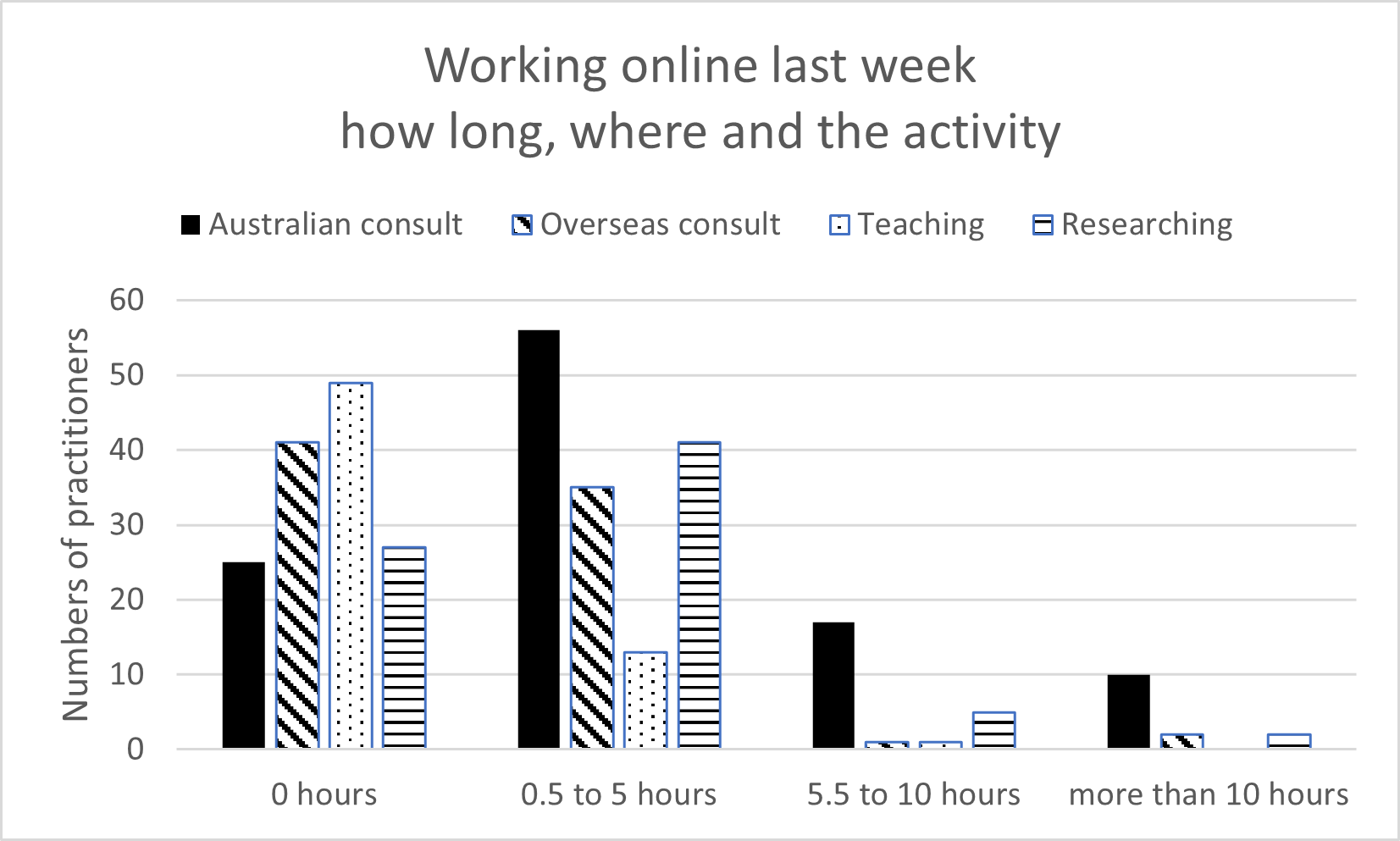
The 2025 survey is now on, and we invite you to do the survey and share it with your colleagues. It takes 10 – 15 minutes of time, and asks anonymous demographic questions about you as a homeopathy practitioner in Australia.
Why are we doing the survey?
To describe the homeopathy workforce in Australia!
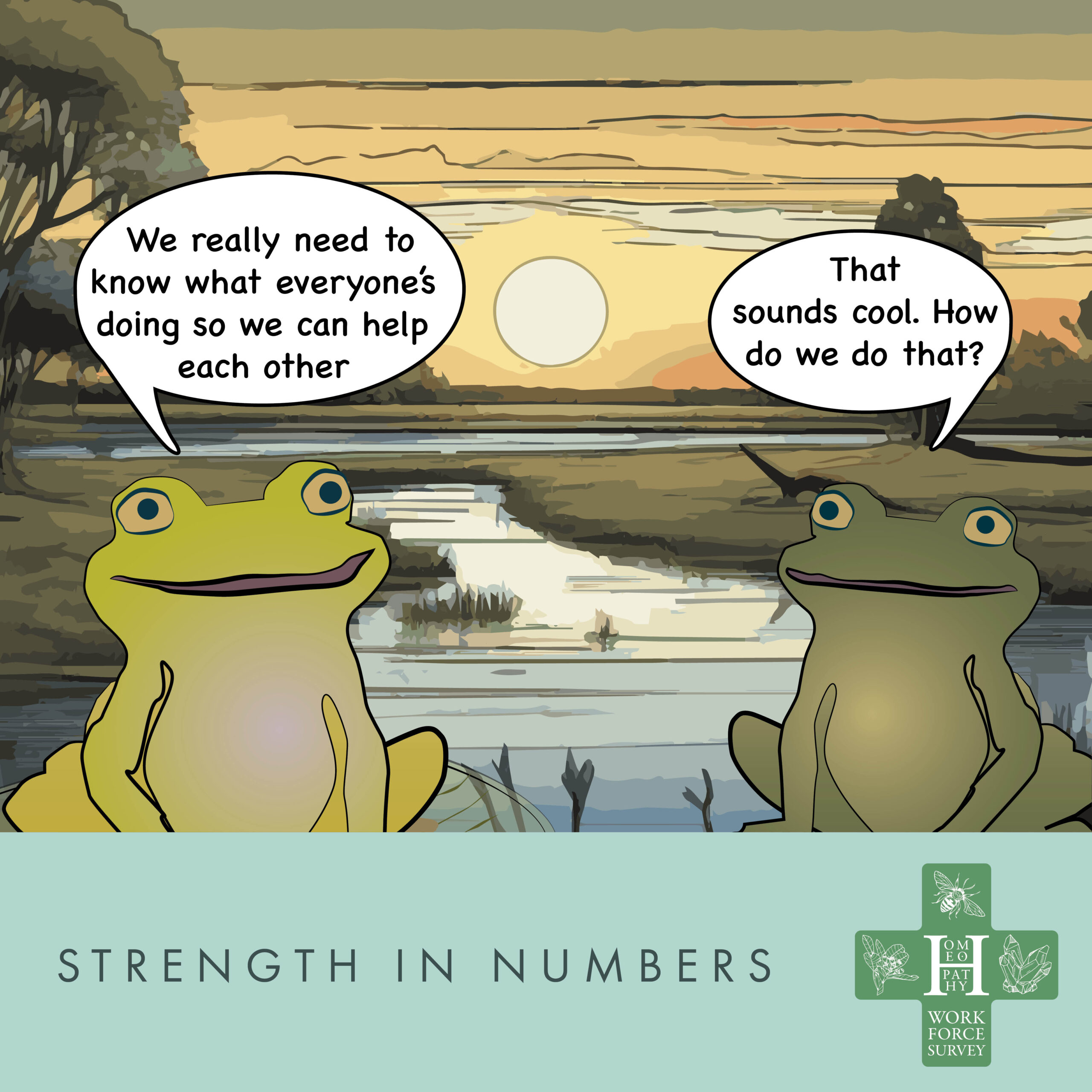
We are excited to see how far and wide homeopathy is being used by practitioners of many types in their practices. You can do the survey here: http://aroh.com.au/workforcesurvey – follow the link to the Start Survey button.
In other equally exciting news: Linlee Jordan, Dr Sujata Naik and Sandra Venables will be attending the 6th HRI Conference in June in Thessaloniki, Greece presenting two posters from The Aurum Project Research Pods, the Homeopathy Workforce survey and the Molluscum Contagiosum Pod’s research findings. Two beautiful posters will soon be available on our website to view highlighting the excellent research work of these two Pods. We’ll share a link in the July newsletter to the online versions once they return to Australia.
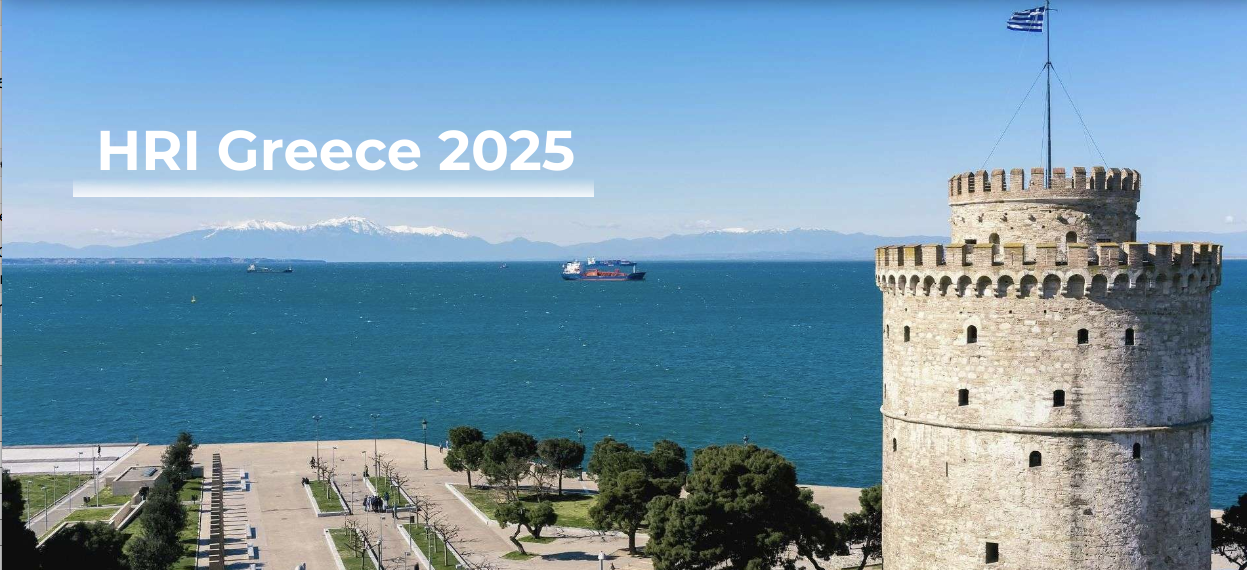
I’d like to thank each and every researcher in The Aurum Project for their dedication to the undertaking and sharing of homeopathy. It takes a lot of effort to undertake a project, especially as a volunteer researcher. It is the combined efforts of all of AP members that makes this entire venture work. Thank you.
*****************************************************************************
February 2025
A matter of consent yes…. no…
Consent is a hot topic. It’s pretty hot in human research too. Use any social media platform and you may be forgiven for thinking Australians don’t really care too much about privacy and the information specific to us.
Stay with me for 3 minutes as I dig into what we Australians think about our privacy. This will help us all understand why informed consent in medical research is critical.
The 2023 survey by the Office of Australian Information Commissioner (OAIC) paints the story about how we feel about our privacy. We DO CARE about our privacy and information. Nearly 50% of respondents to the survey had their data breached / stolen in the previous year. That has huge implications for how we view our personal information.
We don’t rate all of our data the same way and we don’t view all parts of society with the same level of trust. Fortunately, over 70% of respondents rate health service providers with the highest amount of trustworthiness. That’s good news and a lot better than real estate agents (who rate the lowest).
This means that more than a quarter of us (Australians) don’t trust the health sector and how it handles our private information.
When it comes to the data we are happy for an organisation to hold (and use) it is interesting to note nearly 90% of us want businesses to do MORE to protect our private information. We also want the government to pass legislation to make that mandatory.
 Three out of five Australians don’t know what businesses do with their information, this includes health service providers. I agree, I personally have no idea how any of my private information is being stored and used by my medical practitioner. I could assume what it might be being used for, but I don’t actually know. And maybe it doesn’t really matter in the long run. Or does it?
Three out of five Australians don’t know what businesses do with their information, this includes health service providers. I agree, I personally have no idea how any of my private information is being stored and used by my medical practitioner. I could assume what it might be being used for, but I don’t actually know. And maybe it doesn’t really matter in the long run. Or does it?
About 50% of us feel we HAVE NO CHOICE in what happens to our data. Less than half of us believe that organisations are transparent with how they deal with our personal information.
Australians dont trust organisations to :
- store their information securely (46% ‘very trustworthy’ or ‘somewhat trustworthy’)
- use and share their information only for the purposes stated (42%)
- collect only the information needed (42%)
- give people access to all their personal information stored (41%)
- delete their information when no longer needed (30%).
There are specific health laws in each state that govern the actual medical records of us all. If your medical information is stored with a medical professional it depends on the laws of the state how long they are meant to keep your records. In ACT, NSW and Victoria privacy laws require a health service provider to keep records for 7 years or, in the case of a child, until the child turns 25.
We do care about our data and how it is stored, and how and why it is collected. Check this out: even in the health sector we have trustworthiness issues about how our data is stored and used where only 55% believe that they can get access to their health data if they ask for it.
That’s a bit like having a bank and believing that you can only get your money out 55% of the time. Is that level of trustworthiness good enough for you?
|
Health Service Providers |
Trustworthy |
|
Collect only the information needed |
68% |
|
Use and share my information only for the purpose stated |
69% |
|
Store my information securely |
67% |
|
Give me access to all my information they store |
55% |
|
Delete my information when no longer needed |
46% |
This table is an extract from the OAIC report
Most of us are uncomfortable with biometric analysis: that means some form of measuring or predicting who and how we are, including the use of AI based on our biometric data, and that could include any test results or any other measurements taken of us. We basically don’t trust biometric data except for passports and immigration where we are mostly happy to use it.
If you’ve found this snippet about what Australians feel about their privacy and data interesting, read the whole report here.
Informed Consent
When you registered at your GP you probably filled in a new patient form, asking basic questions about who you are, where you live, how to contact you, what you do for a living, if you have allergies, what medications you take at the moment. At the end of the form it might have had a few questions about CONSENT. Do you consent to your GP contacting you to remind you about a test, or do you consent to being registered in a testing program, or something for your ongoing health care needs. You probably ticked yes, because most of us do.
 The OAIC also found a lot of people consent to a range of things, including answering questions that are irrelevant to the service being provided. They do this so they receive the service they are after. It is an unstated, undisclosed part of a transaction, an expectation imposed upon us before we have the transaction. A gate we have to traverse to see the health service provider we want to see.
The OAIC also found a lot of people consent to a range of things, including answering questions that are irrelevant to the service being provided. They do this so they receive the service they are after. It is an unstated, undisclosed part of a transaction, an expectation imposed upon us before we have the transaction. A gate we have to traverse to see the health service provider we want to see.
We generally don’t want to start off having an argument with the provider. In the health sector you really don’t want to ever have an argument after all the provider is assisting you with a treatment to be well, argument is the last thing you want to be doing.
Will they withdraw the treatment or decide I can’t have it? This may not be a consciously expressed thought. It could be a hidden fear that drives our behaviour.
This person is there to help me, so I’ll put my best face on to see what I can get help with. A subtle but felt power imbalance exists and we automatically adjust to ensure we achieve what we are hoping for.
It is called unconscious adaptive behaviour
We do it to survive.
There is evidence of unconscious adaptive behaviour between doctors and patients. Leonardi, Gazillo and Azzi 2021. The 2023 OAIC survey results tend to suggest the issue is quite a deep one for us, given that our trust levels are not in the high 90’s but in the high 60’s. We do have reservations about our health service providers and how they deal with our data.
Informed consent is ONE crucial significant step in health related research. Here our personal and medical information is going to be used. Maybe it will be in a large clinical trial, where more data will be collected over time continuously and we will be monitored. You might be asked to take part in research where your data already exists and the doctor, researcher, practitioner is now asking permission to report on it, in some way.
So what do you do? Weigh up the benefits from being in the trial – a potential cure for your ailment – against the idea that you would be identified and seen in the mass of other data? This trial might be the last hope for you, IF you fit the inclusion criteria, or there is no further no treatment. These are very hard life and death questions to confront.
If you are asked to be part of a case study series, where very uniquely and specifically your data will be seen, but your name and other identifying information won’t be shared, would you do it? Not all can be anonymous, many can but not all. You could be in an extremely rare medical situation where many clinicians worldwide know of your specific case because it is unique, eg Richard Scolyer, the brain surgeon who had brain cancer and was known for the novel treatment he underwent.
If we are being asked for our informed consent to be part of research, the person asking needs to explain, in a free and open fashion, what they want to use our data for, what they hope to achieve from it, why its of benefit to me, or why it is of no disadvantage to you to take part, how your identify with remain anonymous and de-identified.
Always know you are free to withdraw your consent at any time.
It shouldn’t make one iota of difference to the care you receive medically. There are national guidelines on this topic at the NHMRC.
If you are a health service provider – what are you doing to address these silent unacknowledged issues of your patients? If you are in health research, what are you doing to attend to the complexity of the informed consent issue for your patients and your research? And if you are a patient (as are we all!), what are you doing to talk to your health service provider about this topic of informed consent and privacy?
In all cases, an open conversation about the issue of privacy and your data can help pave the way for an increase in trustworthiness. That’s got to be a good thing for us as individuals, reducing our unconscious adaptive behaviour and deepening our trust in key relationships that affect our health care decisions.
I’d love to discuss these ideas further. If you would too, contact me at celeste@aurumproject.org.au
****************************************************************
December 2024
I heard a rumour….
Allison Hargreeves otherwise known as The Rumour (Number 3 from The Umbrella Academy) had a superpower: “I heard a rumour” and whatever she said next would come true.

Image: Pinterest
And while she often used this power to stop a villain, she also used it against her sister Vanya.
It is easy to fall into the trap when hearing about a friend’s great success with a treatment, that we become mesmerised with their experience and can think “That will be the treatment for me!”.
Let me explain by using a story: Jane has a tummy ache and takes Ars Alb as a homeopathic preparation and the tummy ache goes away. A few days later the tummy ache returns and she takes Ars Alb homeopathic preparation again, and it goes away. A couple of weeks later she again has a similar tummy ache, and again takes the Ars Alb homeopathic preparation and it goes away. She continues to use the Ars Alb like this for months and after a while she rarely has a tummy ache. She is talking to Wendy one day and Wendy complains of a tummy ache. Jane quickly says “Take Ars Alb. It works for me.”
Wendy takes the Ars Alb homeopathic preparation. Maybe it works, maybe it doesn’t. She either got lucky with a good remedy for the particular tummy ache she has or she doesn’t get better at all and takes something else and the tummy ache goes away. Maybe the tummy ache would have gone away of its own accord. Maybe the tummy ache is a symptom in a bigger picture of disease for Wendy and she needs more care. Whatever Wendy’s circumstances, it is not clear that the Ars Alb homeopathic preparation has been the solution for her problem.
The quick fix thinking that many people think of as a way to cure their ailments often comes from a close personal connection, from someone we trust, who we believe has the information that we can trust to help us. This trusted information source about medical treatments would often come from a doctor. Since COVID a slide in the public’s perception of trust in the medical profession has occurred. This can often lead to the “I heard a rumour” superpower of friends, relatives and other influencers who help form our opinions.
Homeopathic preparation for a tummy ailment? Is there one?
Ars Alb is a traditional homeopathic preparation for tummy ailments and Samuel Hahnemann’s Materia Medica Pura is one of the first sources of information for this remedy. What modern day information is there? The Homeopathic Pharmacopoeia of the United States (HPUS) is the official compendium recognized by the FDA for homeopathic drug products. It includes monographs that give detailed information about the identity, quality standards, and traditional uses of homeopathic remedies.
For Arsenicum album, the HPUS mentions its use for various gastrointestinal issues, including:
- Diarrhea with vomiting and weakness: Arsenicum album is indicated for temporary relief of symptoms such as nausea, vomiting, cramps, and weakness with chills.
- Food poisoning: It is traditionally used for symptoms like nausea, vomiting, diarrhea, and abdominal cramps associated with food poisoning.
- Restlessness and anxiety: The remedy is also noted for providing relief from restlessness and anxiety, which can accompany gastrointestinal complaints.
If you search the internet or ask AI you will get a lot of interesting information from secondary sources about the remedy. This is a bit like The Rumour. If you get a good piece of information you’ll be on the right track, if not, you can easily fall off course.
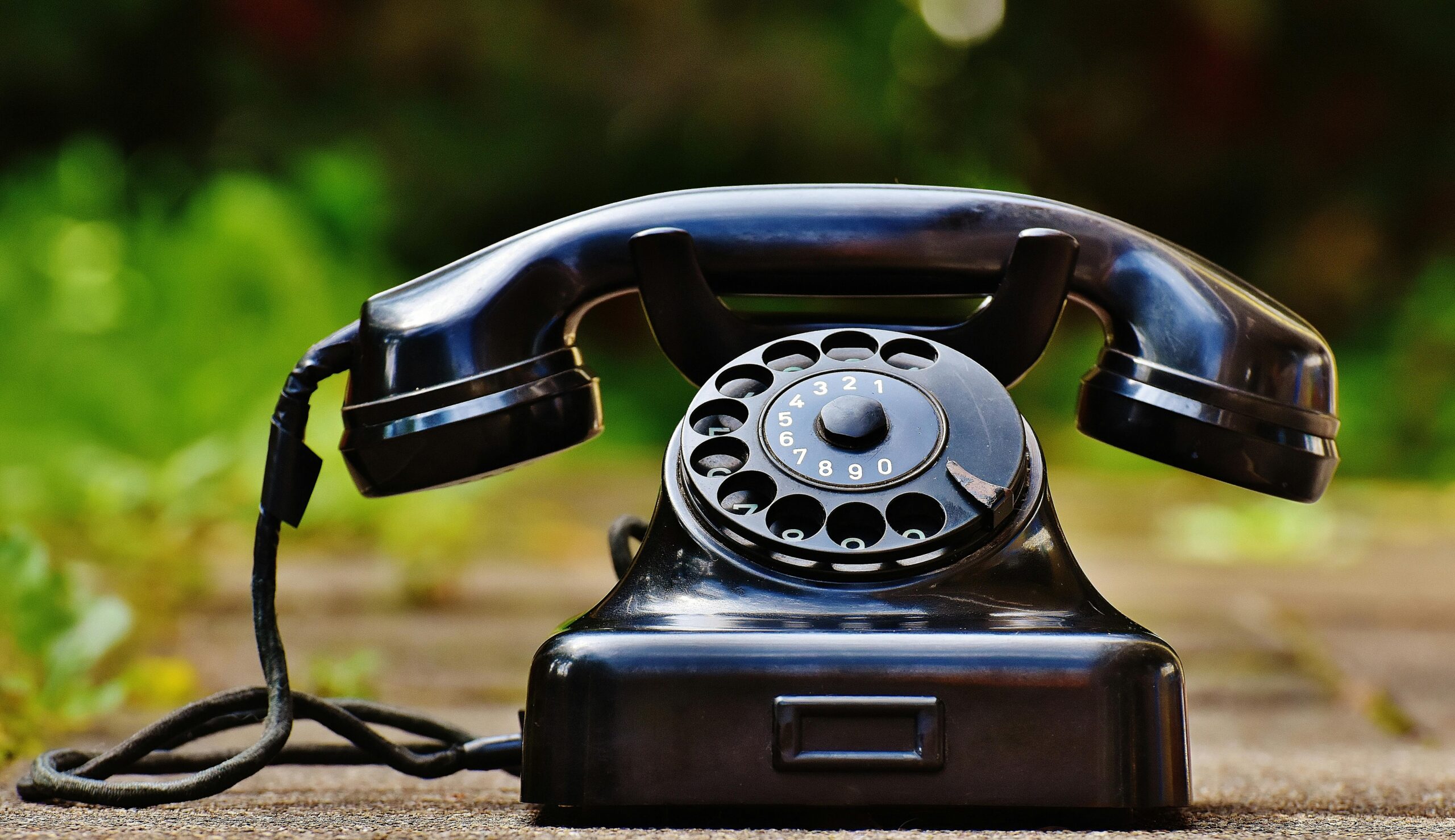
One of the pressing matters for homeopathy is when to consult a homeopath? In the story above, Wendy could consult a homeopath especially if she takes Ars Alb and it doesn’t do anything.
“Surely I can just search online and get the answer I need, or phone a friend?” Homeopathy is individualised medicine, one remedy does not fit everyone, and the approach is to individualise in a professional consultation. This research study for Irritable Bowel Syndrome gives examples of how patients were supported with homeopathy preparations.
Rachel Roberts, Chief Executive of the Homeopathy Research Institute, discusses why to consult a homeopath in the following interview. Professionally trained homeopaths undergo many years of study and training to understand the homeopathic preparations, the homeopathic method, and the patient. It is not a process that happens overnight. There is no quick fix.
When you hear A RUMOUR, you have to do your homework and check out the situation. Good quality information about homeopathy is always obtainable from a professionally trained homeopath, and they can be found in Australia here.
When you’re online wondering if the information you’ve found can be trusted, use these guidelines to dig in deeper and see where you need to consider alternatives to what you have found.
GUIDELINES: CHECKING WEB SOURCES FOR ACCURACY, RELIABILITY, BIAS AND REPUTATION | The Runway
Many thanks and deep gratitude to all of our volunteer research practitioners, you make Pods work at The Aurum Project. Personal efforts from you all including the challenges of time and balancing your clinic activities with homeopathy research deserve high praise. AP’s President Nyema Hermiston also has a message to share.
Merry festive season everyone and I look forward to sharing more with you in 2025.
****************************************************************
November 2024
How Can We Know When a “Fact” About Homeopathy is True?
In today’s world there is much intrigue about what is a fact and what isn’t. We’re bombarded on social media and the news with fake news. There is significant evidence that about 20% of medical research trials are fraudulent in nature.
Some decades ago the idea a scientist or doctor might fabricate results was dismissed as unlikely. This position was taken with the idea that a “rare” instance of fraud would be overcome by the weight of good research. The impact of such errors would be low. It turns out that this idea was wrong, and that some people deliberately manufacture data to get ahead in their careers. At the same time the vast majority of medical research is not fraudulent. This leaves us in a dilemma on what research to believe.
Why Does It Matter?
Research informs public policy and it needs to be of high quality and trustworthy. The result of this approach is that when you’re offered a medical treatment it is known to work. If you are sick with heart disease and the treatments offered don’t really help you recover because the trials have been fabricated, or the side effects are so large you get more sick, you could be risking your life. If a false treatment is endorsed as the principal way to treat your disease, thousands of lives could be at risk.
In short: it MATTERS about the quality of the research that underlies the decision making policy process.
For Homeopathy, This Question Matters
It is quite easy to find true and false statements about homeopathy. How will you know what is true, what is reliable?
To explore this a little more let’s look at one of our AP research projects in the molluscum contagiosum (MOCV) Pod. MOCV is a contagious skin infection easily spread in children.
The Pod has made some observations about the research they found. In 2017, a systematic review of treatment for molluscum contagiosum determined that there was no agreed-upon conventional medical protocol for MOCV, and no specific protocol was suggested for its treatment. Instead “no treatment” was the suggested protocol based on the issue that many treatments had significant side effects. The condition is self limiting – that is it will resolve on its own in most cases – so giving a treatment with uncertain outcomes and with severe side effects is not an ethical position to take.
The Pod dug into the research more deeply. They started asking questions to get an understanding of the landscape. How does MOCV start? What is its incubation time? How long does it take to resolve with no treatment? How infectious is it? How does it transmit? What homeopathy approaches have already been shown to help? You can see the initial findings for the Pod in the poster presented at the Australian Homoeopathic Medicine Conference in Brisbane November 2023. Is homeopathy a viable treatment option for Molluscum Contagiosum?
In this deep dive into the research, the MOCV Pod has found many papers frequently making claims cited in other papers about the cause and factors associated with MOCV infection. Often secondary sources were used and cross referenced each other. That is not good research.
When Jones reports that Smith found X, did Smith do the research? Did Jones report on Smith accurately? Or is Smith reporting that Peters did the research? Or reporting that Peters is reporting? Maybe Smith didn’t get it right. Maybe Jones actually read it in Peters and then cited Smith… It can become a very messy affair to track back to the actual research (primary evidence) on what the actual finding is. Getting the actual source of the data is what good research does.
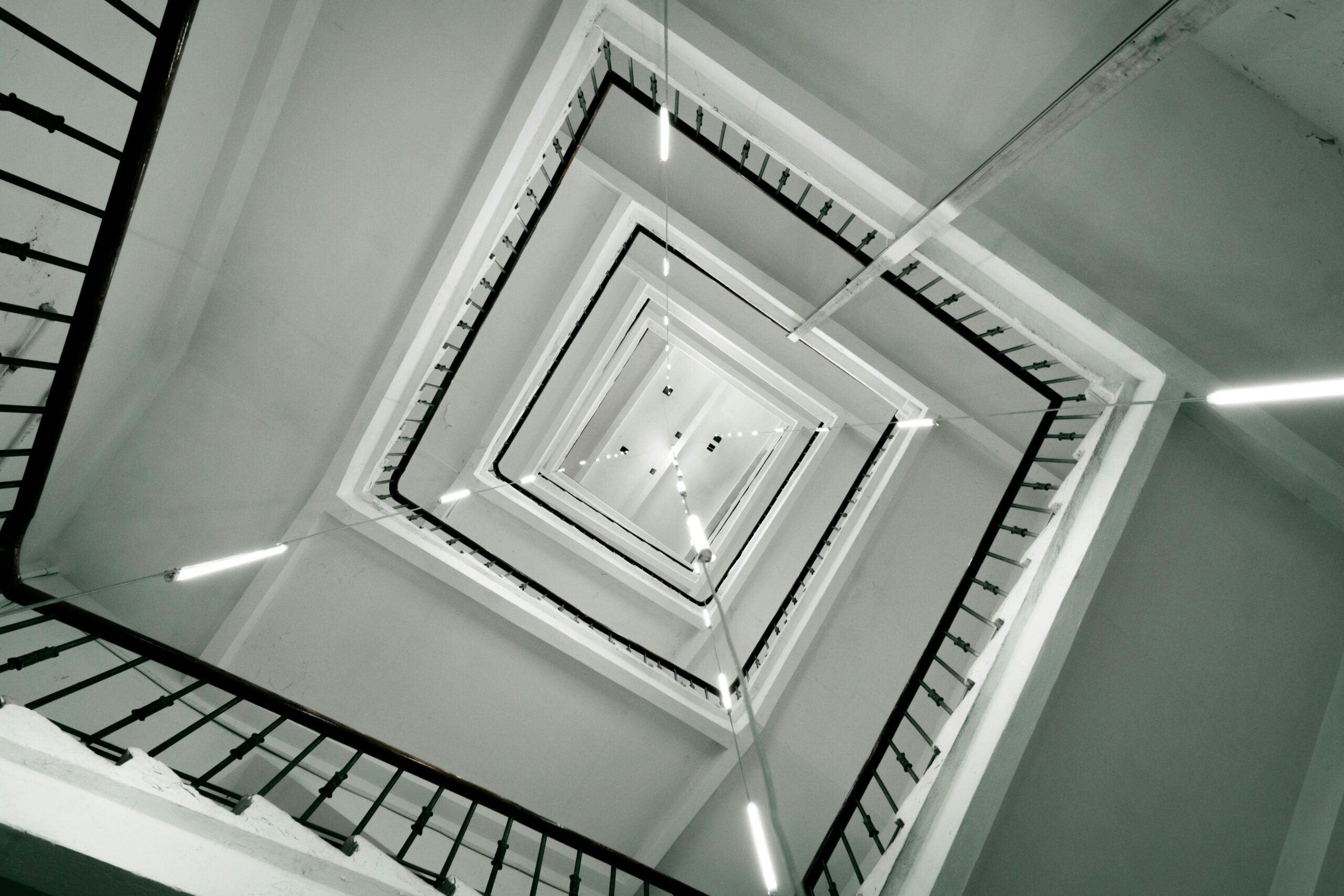
Photo by Stanislav Kondratiev: pexels.com
Some great questions to ask about any research you are looking into are the following:
- Where is the original data?
- Is the data supporting the major claims?
For example there is a repeated claim that MOCV is spread in swimming pools. Careful examination showed however that the infection is spread when the infected skin is rubbed dry when wet, and the fomites (skins samples that are infected) are transferred to another skin area, on the same person (an cross infection from say the arm to the leg), or to another person when the towel or clearing sponge is shared. This cross infection and contamination could be more common for younger children at a pool where they might be dried with several towels, or share towels. The issue is not pools, the common elements for infection and cross infection are soft damp skin and gentle abrasion.

Photo By: Kaboompics.com: pexels.com
In any field where there is insufficient data about the disease itself, gaps in the knowledge base exist.
The question is still how do we know there is good evidence on treatment of a disease? When can we be sure that what we are reading is right, or sufficient for the claim that the treatment works to be taken seriously?
It also was recorded in the 2017 systematic review for MOCV that homeopathy was a possible treatment. It was noted to be of low quality, but had the positive benefit of no serious side effects when treatment was given. This is critical as many parents will choose this option to treat the condition for their children. The issue is – does homeopathic treatment work? Would the MOCV resolve on its own without homeopathy treatment?
The Pod dug in even further at this point to understand the research on homeopathy as the treatment for MOCV. There were many cases published online in non-peer reviewed magazine sites, and sometimes on practitioners’ websites. It is lovely to read these anecdotes, but they can’t be used as evidence for rigorous research. What is more useful are publications in peer review journals. Why peer review ? This method is the main way of making sure the research is real, and not fraudulent. There were a similar number of cases reported, including case series analyses and patients seen in hospital outpatient clinics. Different practitioners, different countries, different patients, similar positive outcomes from treatment. The MOCV Pod will be reporting on these findings shortly – watch this space.
Homeopaths have been treating MOCV for almost as long as it has been known to exist (it was first identified in 1841). It is not unusual for a homeopath to consider MOCV and find a quick resolution for the patient’s lesions. The Pod though found one more crucial (and we might say unique) finding: when children were treated for MOCV infection with homeopathy, other areas of their health improved. Robert Signore, a dermatologist in the US (2022) reported 67% of the patients treated for MOCV had other seemingly unrelated conditions improve with their treatment. No other treatment for MOCV in the systemic review of 2017 showed this kind of effect, that the patient’s overall health improves after MOCV treatment.
Parents with children with MOCV on the face, arms or legs won’t want their children to go to school with obvious marks on their face. They will seek out solutions, and the ones that are easy to execute as well as effective. MOCV is not a dangerous virus, unless there is an immune compromised system. Parents of children with MOCV want quick resolution of the lesions. They are pleasantly surprised and happy when other conditions are also improved.
This improvement is not something that happens because of MOCV treatment. Rather it is the homeopathic approach applied to any condition that can result in these outcomes, better health for the patient. A recent study showed this for children under the age of 2 treated with homeopathy for acute conditions or children who were given conventional primary care. The homeopathy treated children had better heath indicators at the end of 2 years compared to the conventional care children.
To tell if the research is rigorous a few things are needed. Knowledge about the methods used, the treatments applied, the conditions treated, knowledge about the patients themselves. The process of testing and recording needs to be transparent.
Please reach out and let me know your views.
******************************************************************
September 2024
Creating more opportunities for 2 way connections at times that suit you.
In the last few months The Aurum Project Management Pod (Celeste, Linlee, Michael, Erica, Sunny – we call it the Teal Pod), has been canvassing ways we could encourage the membership and followers of The Aurum Project to really engage with one another.
One thing we all realise is that the Teal Pod doesn’t have all the answers for The Aurum Project. This is one of the reasons that Pods work so well for us, everyone in the Pod has a voice, a chance to engage, share, step up and offer a skill or insight that the Pod needs to accomplish its aim. Still how do we expand that reach to you?
It is most likely the main way you’ve been part of The Aurum Project is to receive these newsletters. Maybe you’ve bought a book from the Book Barn (thank you again if you have done this!), purchased a Golden Book, downloaded articles, and given us feedback in a survey. Some of you have stepped up to join as a member, and been able to access our member resources. We hope you have found excellent resources for your work in natural health. A lot of our engagement with you is information driven exchange.
We are human – creatures of communication and community. We love to share with each other and gain a lot of insight from asking friends and colleagues. We trust their recommendations and view on things. It is one of the ways we grow and form opinions about what to do, where to go, and how to find the right information to support our projects. Wouldn’t it be good if we could offer this for all our members and supporters in homeopathy?
We are developing a platform where discussions about specific topics can take place in a trusted online environment
Up until now we’ve only been able to offer questions and discussion through face to face meetings in Sydney or the Northern Beaches. A growing number of our members are interstate and overseas, so you can’t easily make these connections with other members. Connecting Homeopaths sessions online also meet this need, if the time conflicts with your clinic needs, you miss out. Our online Melting Pots also offer an avenue of connection.
We want to step things up for you. Offer the opportunity to be engaged with us in discussions and sharing your thoughts and views on different topics at times that work for you. On topics that matter to you. Up until now we simply haven’t had the resources capable of offering this pathway of engagement in The Aurum Project to you.
We think Facebook and Instagram are not quite the right place for our organic discussions. A platform that will allow us to explore this aspect of community building is HYLO. It is a community space that matches our organisational values. It’s non-political. It has a social media feel to it. You can use it to talk with us for free. You can trust our online space as you know us, The Aurum Project. All of our activities are about supporting homeopathy research, for the public, practitioners and patients.
The Teal Pod has been testing HYLO for a couple of months and we think it offers us a gateway for the type of community evolution we are hoping we can co-create with you.
To start this process we have begun a couple of important conversions for homeopathy. The first discussion is on case reporting and case taking. The second discussion is on…….
If you are a newsletter subscriber, Erica will send you an invitation link to join. Simply follow the prompts and you’ll be in. There is no obligation to join up. If you would like to take some steps with us and explore more topics on health and wellbeing join in. If you’d like the opportunity to ask The Aurum Project members real time questions, join up and join in. You can join any time once you have the invitation. Save the invite and use it when you’re ready. If you need it re-sent just ask us. And of course you can leave the space at any time too, you’re not locked into another online space.
Hylo is a true community space. This fits with our values of offering and sharing with the public in ways that make it possible for you to use the information and services we offer. We also want to create spaces for practitioners to have discussions on the topics that matter to them. It allows our community to engage in a teal way with each other, including sharing our needs and wants and supporting that process for everyone. If HYLO looks like it will work for our Aurum Project community, we will put more time into it to help it grow with us all.
Let us begin this experiment for this new phase of engagement together.
*********************************************************************
August 2024
Self Reflection – do we need it?
Over the last few ruminations (see July, June, and May entries below) I’ve been musing about cases in clinics. They are one of the most critical teaching tools for professional homeopaths, in a peer to peer way. It is one way we learn from one another, by sharing what we did, how something worked and how something didn’t work, and discussing why. But how can we learn if we don’t publish our cases?
In the spirit of full disclosure, I was discussing with a colleague why I haven’t written up or published a clinic case yet.
“Quite honestly I am not sure I have one good enough”
Despite being in practice for over a decade, I feel I don’t have a case that makes the grade. One day I think I will but not yet. Yes, I failed to meet my self imposed imaginary grade of 100% perfection.
Would I be critical of a colleague, reading their case, when they discussed in detail a process they undertook to help a patient in their healing? No.
Would I be interested in reading how they overcame obstacles in their case management, how they engaged with patients, how they added new techniques into their sessions, how they chose a technique from one case to another for the same patient? Yes you bet.
Would I be upset if I read a case that had these issues in it??? No!
In fact this is what I want to read – how my colleagues address the issues of practice in real time with their patients. Insight into active practice would help me when such a dilemma confronts me. That is the case I’d be happy to read. So why haven’t I written one myself yet?

The reluctance to step out of my bubble, it turns out is due to a phenomenon called positivity bias.
According to Vera Hoorens, “Positivity bias may denote three phenomena: a tendency for people to report positive views of reality; a tendency to hold positive expectations, views, and memories; and a tendency to favour positive information in reasoning.”
Well I am known for being somewhat positive in my outlook! I wouldn’t say that i have a pollyanna attitude. So what does this bias really mean?
The possible result of this bias is that I may find it really hard to allow myself to have a truly critical appraisal of my own clinical case taking process.I could create a belief in my mind that I have done a great job in my case taking. If I did take steps to write up a case I might start to feel uncomfortable if I start to see how I could have taken a different approach, and maybe had a different outcome. To a certain extent even writing this post feels a bit that way.
People don’t like to feel uncomfortable. We get worried as if something might be wrong with us, and try to avoid those feelings at all costs. Thoughts can start to intrude like: my colleagues might judge me harshly for not being 100% right. I feel like it’s a life and death situation.
Is it?
This is where a reality check is needed. An adverse event in public health is where some process or treatment for a patient goes wrong, and can result in death. In 2018, adverse event rates occurred in Australian hospital settings between 3.8% (private) to 6.6% (public). The WHO reports that 10% of people in high income countries, like Australia, can be injured in a hospital and that about 50% of these cases are preventable. Ideally a rate of zero error would be nice, as these events can end up in serious injury or death for the patient. In reality Australia’s low (good) figures shows that our health system is pretty good but not perfect. We accept this error in how institutions operate and in other areas of life, even with our friends and family. But when it comes to us personally these limits are set aside and we expect that we should be 100% correct 100% of the time.
What can happen is: we look to others and give them the benefit of the doubt, accept their flaws, but look at ourselves more harshly in the same situation, as if we don’t meet a minimum standard. With a positivity bias things go further: we don’t look at our case critically or with discernment. We start to take an easy path of believing that everything we do is OK, no need for questioning or critical thinking. The patient got better, we might assume that it was solely due to the treatment we provided. Otherwise, we will feel uncomfortable, and we won’t go there.
As I said earlier, I’m a very optimistic and positive person. The trait is a good thing to have and to cultivate. A lot of our well being is informed and benefitted by a positive outlook. If we have a chance to think the better of someone, or some situation, it can motivate us personally to look more favourably at a situation. It can help us create something good for the situations we are in.
Homeopathy is often criticised for being too positive. This alleged positivity bias is proposed by critics as the reason for the professional not reporting on trials and other studies, studies that are begun or not completed, or studies that are completed and simply not shared with the public. It is fair to say we don’t know why these trials and studies are not reported. It could be for a variety of reasons, including lack of funds to complete studies. It is true that 38% of completed homeopathy trials are not reported on. It is the type of action that could be seen if we were stuck in a positivity bias.
How do we overcome our discomfort and allow ourselves to write up our cases from our clinic?
It is an act we know will be beneficial for ourselves, our peers and profession as a whole. Step one is to realise we could have this bias and there are things we can do to overcome any limitation it might bring to our critical thinking. Step two, get some colleagues together and start working together on your cases. The chances are your worst critic is you! Your colleagues will have a more balanced view of your case, be able to help you ask the questions you didn’t see, and together you’ll learn more about the depth of case taking, self reflection and utilising the best aspects of a positivity bias. Step three, ask your patients for their feedback on your work with them. Ask them to give you a frank assessment of the experience they are having working with you. It will bring insights to your understanding of how you are with them and what you can do to improve those relationships.
This is the power of self reflection, a process we can undertake in case reporting. The process that will help us all be our best professional selves.
The Aurum Project and Australian Homoeopathic Association will be hosting workshop sessions to take a first step in bringing our cases out of the filing cabinet into the light. The aim is to work confidently with your colleagues to share that gem of a case that we all need to hear about.
““Best” doesn’t mean in relation to perfect, or to having any final words on the matter. “Best” means that I speak from where I live – from where accidents of birth, life and profession have put me – with as much openness, clarity, compassion, and integrity I can find.”
Patricia A. DeYoung May 2021, Understanding and Treating Chronic Shame – Healing Right Brain Relational Trauma, Routledge 2022.
******************************************************************
July 2024
A lot of homeopathy practice is listening to the patient and hearing their voice.
Their voice includes the story of their life, the way they are talking about themselves and their activities, the tone, the things they easily want to talk about, the matters that they shy away from. The intensity, the colour, the absence. It is from this point that the unique individualisation of the case taking, analysis and reporting arises for the homeopath.

Our patient could be like Dorothy, on a personal quest to get home, finding 3 aspects of self: the desire for a brain, a heart and courage, beset by challenges, and in the end realising that she always had the means to get home. She had to allow that knowledge to reveal itself to her. As a homeopath we sit and listen to the unique story of the patient, with their challenges and crises, and use remedies to help them on their path.
We record that story and analyse it, and then we write up the case. And somehow something changes in that process, the voice of the patient is muted and the voice of a discipline takes over.
Here is an abstract for a case published about a 35 yr old woman with multiple health concerns (described as multimorbidity).
Background: Multimorbidity, a prevailing trend in the primary care population of all ages, is a challenge for health care systems that are largely configured for single disease management. Homeopathy has shown competence in the management of chronic diseases, whether they occur as a single ailment or as a multimorbidity.
Case history: A 35-year-old female patient presenting with hemorrhoids, low back pain, hypothyroidism, fibroadenosis breasts (bilateral), and fibroid uterus was given homeopathic treatment for 33 months at Nandigama AYUSH Lifestyle Disorders Clinic, Andhra Pradesh. She was prescribed the homeopathic medicines Lachesis mutus and Thyroidinum at different time intervals based on the totality of symptoms.
Results: Following treatment, a reduction in the size of the uterine fibroid and complete regression of breast lumps in ultrasonography were noted. The modified Naranjo criteria total score was 10 out of 13. Further, significant improvement in symptoms and laboratory parameters, such as triiodothyronine (T3), tetra-iodothyronine (T4), and thyroid-stimulating hormone (TSH), indicated that a well-chosen homeopathic medicine may be beneficial in managing multimorbidity.
Conclusion: This case study reveals a positive role of homeopathic treatment in multimorbidity. More case studies and well-designed controlled research should be used to further investigate homeopathic intervention in multimorbidity.
This type of case write up is what the scientific world is publishing. The case itself fulfils all of the criteria we have created in our profession to say what is a good case report. The modified Naranajo criteria assessment adds a further gold star to the case to say that the treatment is likely the cause of the cure, not some random event that might have occurred anyway.
I read this, and my first question is, where is the voice of the homeopath? Where is the voice of the patient? In this report, the life and dynamis of both parties in the clinic is somehow reduced to the diagnosis and treatment pathway. The heart and soul of both patient and homeopath have been forgotten. It looks like Dorothy can only have a brain.
This example gives us the case where the voice is not there but the detail is. Can we have published cases where the voices of both are present? Can we record the heart and the courage? I believe we can.
Coming up later this year are two papers Ilma Hynson and I have been writing on case reporting and the experience of writing up a case for reporting and publication. We are keen to feature the voice of both homeopath and patient in the writing. Ilma is a homeopath with over 30 years of experience. I’m keen to read her unique way of seeing the patient and their voice. I’m also keen to read in her case report the way she narrates her path to help her patient. That is more than the prescription. Over 25 years I’ve noticed that we all do our homeopathy a bit differently from one another, we use different models, different techniques, approaches. We have a vast toolkit of options. How do we choose the one we choose? Everytime I talk with homeopaths about hearing the nuance of the experience of the case taking and analysis, I hear they too are keen to hear that story.

Fortunately, the criteria set out by Teut et al (2022) on what’s needed in a case good for publication, doesn’t say, leave out the voice of either the patient or the homeopath. In fact the 13th criteria for HomCase is a specific call to hear from the patient about the experience they had with the treatment process, which may also include their experience of the homeopath. That feels like a 360° analysis.
We could build a bridge to help us all travel the path from our case notes transformed into a finished case report.
Invitation:
Do you have a case in your clinic that you know would be a jewel to share with others, but you feel uncertain about making it a case report for publication?
We are hosting a Melting Pot on this very topic of Sharing our Cases on Thursday August 8 at 7pm Sydney time. Come along and join the discussion on what we can do to support each other in writing up our cases. In doing so, you will be supporting our research Pods too as much of the reach they are working with are clinic cases. REGISTER HERE to join us. The more the merrier.
*****************************************************
June 2024
A curious case of a reduction in suffering
One of my intentions in these ruminations is to share the joy of homeopathy research with you in plain english.
Many years ago when I was first in university-land, reading research papers on metallurgical processes and tests, I wondered a lot of the time “What does this mean?” A lot of complex, technical, sometimes incomprehensible words that mean something to a handful of people. A writing form that felt stilted and unrealistic.
At university I learnt how to write up research results in a way relevant to universities and academics, a format that has developed and evolved over decades. When I left university and worked in industry, the written form changed. Results from any research undertaken were always written about in the context for bottom line operations or long term expected gains for the company. No finding exists without the context. Every industry has its own way of expressing itself to its peers. This includes homeopathy.
Switching it up to health and homeopathy. What matters to us when we consult a complementary medicine practitioner about our dis-ease? I suggest our first thought as a patient is “help me reduce my suffering”. In Aphorism 1 from Hahnemann’s The Organon, “The physician’s high and only mission is to restore the sick to health, to cure, as it is termed,” is the homeopath’s first call to action. It is fundamental to our practice and fundamental to our patients who are looking for relief.
So what does this have to do with homeopathy research? Research that exists that may support me reducing my suffering is something I may want to know about. It turns out research has quite a lot to do with homeopathy. We only know how to apply the homeopathy principles in our case taking activity because of the research we and others have done in their clinics. Alongside our fundamental knowledge of the remedies used in homeopathy obtained from the provings, we have a unique consultation process. These two key parts of our practice come together dynamically in the clinic with our patients.
We are at the cutting edge of applying the research and making new findings, each time we consult with a patient.
Unfortunately, the word “research” conjures up a modern day mental image of activity that seems distant to what we do in practise as homeopaths. What do you think of when the term research is used? Is it a white coat, a laboratory, test tubes, words like Randomised Controlled Trials (or RCT’s) are used and BAM off you go for a run, or listening to the latest health podcast. “Research” doesn’t seem to have much to do with what happens in my clinic, and if I don’t get a very clear story on how it impacts my life right now in some way…. hey I’m pretty busy, I move on.
The chasm between me and research increases when words like academic, institution, faculty, are used. If we add a few statistical terms in or a model name (see I already lost you just talking about it) it can turn us away from the joy of realising we are all part of an ongoing research activity to reduce suffering.
So how do we translate the homeopathy case reports we are writing into a language that engages with people, rather than leaving them with a sour taste in their mouths?
We can write the case report just as we would write case notes in an unfolding narrative of the patient within the consultation. We ask the patient in the consultation, what’s happening for them, in your own words, tell me what you would like my help with? And a series of other questions inviting the person into their body, feelings of thought, depending upon how they are talking to us. Where in your body does it feel, or doesn’t feel? Describe for me your experience of life? What does your typical day look like? What does a difficult day look like? What does a perfect day look like? At the start they may speak to the point, laconic, dry, ordinary, procedural, task oriented, or it might be emotional or mentally colourful and slightly magical. Whatever they say is the patient expressing themselves in their dis – ease, at this moment with you the practitioner, both seeking to find an end to their suffering.
It is a beautiful thing to be asked “how are you?” and being given space to explore your experience of being human at this moment in time. Given to time to consider the experience of our dis – ease. We get to consider these issues when we visit a homeopath. Who else can you think of who asks you to share how you feel when you vomit? “Actually” she answered with her eyes lighting up “you know I feel much better immediately after! I feel like I’ve been exorcised of a foul beast that lurks in my throat”. Throat, foul beast, tell me more about them? A homeopath is interested in your experience.
Can you imagine a narrative that presents both the process the homeopath undertook to understand the story of the patient and what steps they took to assist the alleviation of the patient’s suffering?
This is the case report. It covers the patient’s experience, the story of their dis-ease and the treatment given. It includes medical diagnosis and tests, other treatments already tried and their outcome. About these other treatments, do they work, to what extent? Mostly our patients will have other treatment, whether it is self selected, medical or other complementary medical treatment. Quite a few patients come to a homeopath because the other treatments are incomplete or failing to alleviate their suffering, or as we hear there is no treatment for this condition.
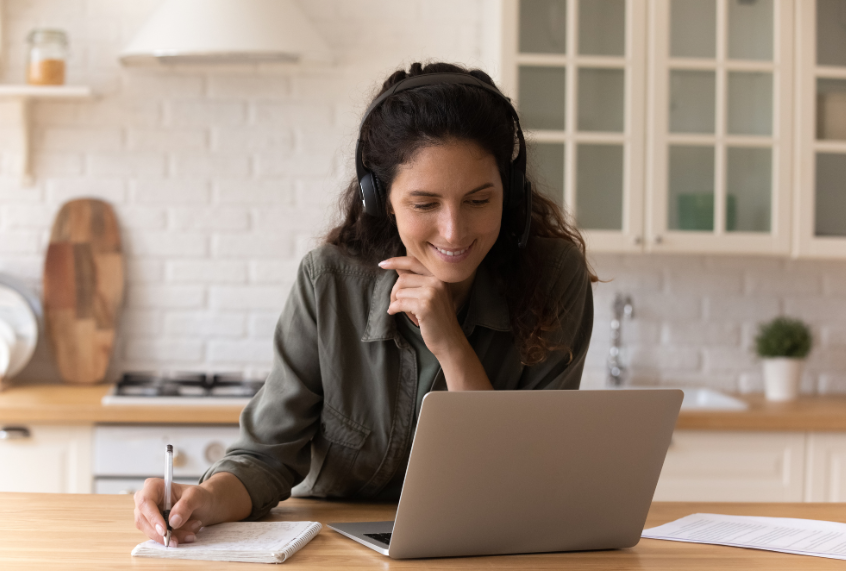
Then matters get a bit technical. The case report covers how and why the homeopath did what they did. This is the gold of the case report, and is where we could really develop the story of the homeopath and their process. The treatment description and reasoning is more than a line item “Sulphur 30C, 3 times a day for 3 days”. It’s a discovery about the way the homeopath worked things out and “managed the case”.
An exploration and explanation of why the path is chosen helps us all understand the way different homeopaths implement the art of homeopathy. It is where we acknowledge the homeopath is as individual as the patient, and it is the interaction between these two that is as integral to the healing path as the remedy. A well reported case helps all homeopaths no matter what stage of their practice. A case report that has the patient story helps anyone reading it touch the spaces of suffering of another human being and the path taken to resolve their situation. Our unique expression of humanity can be expressed in the case report.
In the next instalment, I will explore more deeply into the voice and tone we might use to report a patient’s narrative, and where we can use our well honed case taking skills as the central pillar of case reporting in the 21st century.
Invitation:
Do you have a case in your clinic that you know would be a jewel to share with others, but you feel uncertain about making it a case report for publication? If every Australian who is on the Register of Homoeopaths (ARoH) in Australia published one interesting case, there would be over 300 cases in print. If every practising homeopath published one case, there would be a lot more!!
We are hosting a Melting Pot on this very topic of Sharing our Cases on Thursday August 8 at 7pm Sydney time. Come along and start the process together in what we can do to support each other in writing up our cases. In doing so, you will be supporting our research.
AP Members will be emailed a discount code, so look out for this in your inbox.
REGISTER HERE for the Melting Pot
************************
May 2024
Get on my case!
Central to everything the homeopath does “in clinic” is the thing we call “taking the case”. It is where the theory of everything we are learning as practitioners is put into practice with our patients. As our learning of the art of homeopathy progresses we aim to improve how we help the patient with their dis-ease. A homeopathic preparation is often dispensed during the consultation (not always), and often there is a lot of talking and counselling, again not always. It is a kind of hard to define space, the space where the homeopathic interview or session occurs. Every session is different as each homeopath is an individual and each patient is also an individual.
 For a couple of centuries now homeopaths have been writing up their cases and sharing them with other homeopaths to learn more about this process of case taking and how a remedy worked for this patient. Homeopathy is a lot more than just giving a remedy and reporting on its effect. The actual processes of individualisation, a word you may have come across already, is a key part of the art of our practice. It is about how we take the case so to speak, the case of you, the patient, not the disease diagnosis you have. It is the process that often results in the feeling of being heard by the practitioner as they are listening to your experience of your ailments with as much seriousness and care, as you are experiencing the effects of it.
For a couple of centuries now homeopaths have been writing up their cases and sharing them with other homeopaths to learn more about this process of case taking and how a remedy worked for this patient. Homeopathy is a lot more than just giving a remedy and reporting on its effect. The actual processes of individualisation, a word you may have come across already, is a key part of the art of our practice. It is about how we take the case so to speak, the case of you, the patient, not the disease diagnosis you have. It is the process that often results in the feeling of being heard by the practitioner as they are listening to your experience of your ailments with as much seriousness and care, as you are experiencing the effects of it.
Homeopaths all over the world are taking cases daily. Case file notes are accumulating online and inside filing cabinets. Over years the history of a person may reveal and unfold within the clinic of the homeopath. My homeopath has records regarding my case for over 15 years. A deep understanding occurs between the practitioner and the patient when we visit and consult for years on our dis – ease and work towards healing. This is like an onion peeling away layers of dis – ease, allowing our creative selves to be realised, not hindered by chronic disease.
Case reports are also the main data for the research we conduct at The Aurum Project. A well reported case helps a new homeopath understand the way an experienced homeopath has undertaken the case taking and analysis for that patient with that dis – ease. It becomes a fundamental teaching tool. The case report helps a middle career practitioner reflect and expand on their own approaches especially as more complex cases arrive at their clinic doorstep. It brings insight to the experienced practitioner on how a colleague approached the patient, and the inner reflection of nuance on how they managed the patient case. Sharing cases promotes an inner space of awareness in the practitioner, is that what I would have done? How did they come up with that approach? Why was this or that decision made? There is learning for all homeopaths at all stages of practice from the sharing of a case report.
Every-time we give our practitioner permission to write up our case we are helping current and future homeopaths in developing their skill as a practitioner. Published cases are always anonymous.
You can review some cases that we have published in The Aurum Project blog here.
Next time I will share with you some more ideas on what makes a good case for research and education.
*******************************
March 2024
Time to be counted!
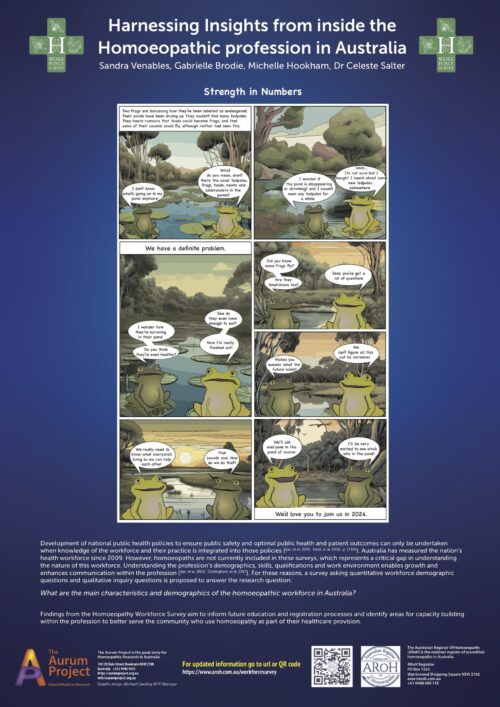
Systematic Review – “A systematic review determining the amount, focus and nature of homoeopathy research activity in Australia” Presented at Australian Homeopathic Medicine Conference in Brisbane
***************************
September 2023
On 27th August 2023, Celeste gave a presentation to the NSW Branch AHA AGM with some reflection on the international research shared at the Homeopathy Research Institute
- Homeopathy treatment of recurrent urinary tract infection: a retrospective case series analysis – by Sunny Goddard, Celeste Salter, Ash Sharafi, and Sabina Vatter
- Determining the quantity and focus of homeopathy research activity in Australia: a systematic literature review- by Sabina Vatter, Linlee Jordan and Celeste Salter
It was a wonderful opportunity to be selected to share the research our members have been undertaking here in Australia. Here is the 30 minute video of Celeste’s presentation and reflections at the NSW AHA AGM. Our Pods will also present several posters at the upcoming AHA conference in November, we hope to see you there and share more face to face. 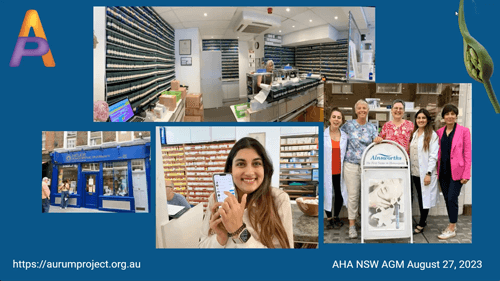 Enjoy
Enjoy
*******************************************************
August 2023
AP goes to the Transformations Conference 2023 in Sydney
On July 13th, 2023 Linlee Jordan and Celeste Salter made a presentation at the Transformations Conference 2023. The International Transformations Community and Conference is there to increase people’s capacity to transform social – ecological systems to achieve desirable futures that are sustainable, regenerative, just and equitable by co-creating and amplifying knowledge, capacities, learning and action. It was attended by practitioners, researchers, artists and anyone involved in making a change for the better on this planet.
The conference topic: Transformative Partnerships for a Better World, was attended by over 700 people from 40 countries, in a hybrid conference held online and in person in Sydney, Prague and Portland Maine from July 11 – 14.
Linlee and I (Sunny Goddard was there in spirit) gave a short presentation on what we are doing at The Aurum Project to shift the paradigm in health care research, with our Pods initiative. We presented how we are creating a new way of undertaking health focused research. Our Pod members are practitioners passionate about their research topics and homeopathy. They work together and self-manage their activities. They are online. They apply their clinical knowledge in their research topics and apply the findings of their research directly into their practice, benefiting their patients.
What makes what we are doing at The Aurum Project different, is the strength that arises for the individual relationships formed within the Pods. This is the foundation of the Pod. It is a great support for us all.
Mike Cowdroy created the above image for our talk which was warmly received and resonated with many of the attendees in our session. It gives a new way of visualising and thinking about an organisational structure. A new image and concept for a new approach. It shows the dynamic nature of the relationships between all of the parts of the system. This is what Pods are like, and the strength of the relationships between the Pod members is something that many of our AP Pod members are valuing. It is what sets our research approach apart.
I was proud to share The Aurum Project story at the conference with Linlee Jordan. Linlee is the AP Director and founder. It is her vision that we are building and co-creating. We are all excited to see what is possible in the future.
Celeste
****************************************************************************************
July 2023
AP members go to the HRI Conference London 2023
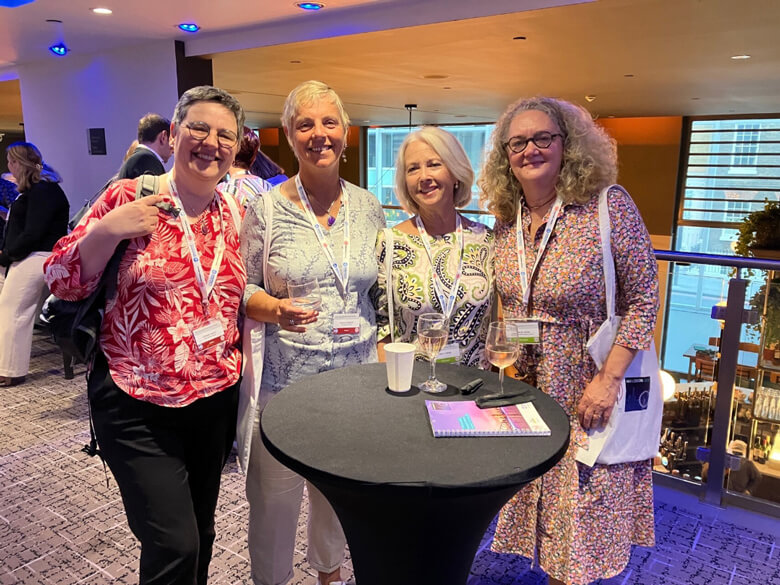
Dr Celeste Salter, Sunny Goddard, Jane Lindsay, Sharon Jones (left to right)
Dr Celeste Salter (AP Research Coordinator) and Sunny Goddard (AP Teal Relationships Coordinator) presented 2 posters at the HRI conference in London June 2023: “Determining the quantity and focus of homeopathic research activity in Australia: a systematic literature review” and “Homeopathic treatment of urinary tract infection of women in Australia: a retrospective case series analysis”. Also attending the conference from Australia were Jane Lindsay, (AP Vice President) and Sharon Jones (AP member).
Sunny and Celeste had the opportunity to meet with Rachel Roberts, Dr Alex Tournier and Dr Esther van der Werf from HRI before the conference. They learned that the international homeopathic community is looking to build grassroots engagement with practitioners. “This is exactly what The Aurum Project is already doing. It’s something we can and will build upon,” said Celeste.
Excellent questions being asked in our community.
There is a growing discussion on what kind of research might best support our discipline? There are calls for more qualitative research activity. A paraphrased question from Dr Michael Teut, Researcher at The Institute for Social Medicine, Epidemiology and Health Economics in Berlin: Should we be doing different types of research, ones that support our profession from within? Are we asking the wrong questions? What kinds of research would better suit our homeopathic community? There are sound psychological reasons why our good quality quantitative research won’t be acknowledged by the current dominant medical paradigm. Is there a better way ahead for us?
We heard engaging discussions on homoeopathy, how to help strawberries grow more productively with Dr Leonardo Faedo, how to farm fish with less disease with Dr Jesus Antonio Lopez Carvello, mixed methods studies on mental health measuring the quality of improvement as well as the qualitative assessment of narratives in consultation with Dr Hildegard Klingberg, and explorations on the patient satisfaction with homeopathy treatment in Bulgaria with Dr Dora Pachova. The increasing role and prevalence of CAM therapies including homeopathy for cancer treatment throughout Europe, and especially Italy, is encouraging.
Throughout the world homeopaths are exploring and working as well as they can, against a strong force of opposition. Despite this, basic, clinical, observational, case studies, prospective pragmatic trials, mixed method approaches in research.
Proving methodology and compliance with ethics and clinical trials regulations continue to be done producing exciting results for us all to use. Professor Ashley Ross and Dr Peter Smith have been leading this important development of our primary research tool. It makes our discipline so much stronger when we pass through these ethical requirements while maintaining the essence of our practice.
It’s clear that homeopaths all over the world are resilient!
The grass roots approach we use in The Aurum Project is exactly what our international community needs. Time and again presenters mentioned the many thousands of cases we have in our clinics all over the world that no-one hears about. We have internationally accepted guidelines on case reporting. And yet there are many interesting cases we all have in our clinics that haven’t made it to print or even shared with our peers
Maybe we can all help do something about this here in Australia.
Sunny and I would like to say thank you to everyone who helped support our attendance at the London conference. We made many beneficial connections, including with Ainsworths Pharmacy homeopaths, Boiron researchers, and also with Japanese homeopaths. We’re very grateful for your support.
From Celeste and Sunny
****************************************************************
April 2023
The last few weeks at The Aurum Project have been buzzing along with Pod members creating posters and compiling research ready to share with the world.
Did you know that community acquired antibiotic resistant infections are on the rise?
What does this even mean to us? It means our community is becoming immune to a range of antibiotics AND this resistance in people is occurring OUTSIDE the hospital. You may have heard of MRSA (methicillin resistant staphylococcus aureus), a hospital acquired antibiotic resistant strain of staphylococcus aureus. It is a pretty serious situation and results in a lot of people dying when they get say an infection because the antibiotics just don’t work for them. On the rise are UTI infections and they are increasingly becoming antibiotic resistant. This is of significant concern, given the common accepted treatment for UTI is antibiotic therapy. The UTI Pod has been exploring this and other factors, and this leads them to want to show how homeopathy could be a suitable treatment for UTI.
To support our efforts to present our research at HRI London 2023, please do so HERE.
The Molluscum Contagiosum (MCV) Pod
This Pod is well progressed with their retrospective review exploring MCV cases in two clinics. Dr Sujata Naik’s clinic in Mumbai, India and Harbord Homeopathy Clinic in Brookvale, NSW Australia are examining their past cases to see how MCV presents for homoeopathy treatment. One interesting observation so far is that in the Mumbai clinic of Dr Sujata’s, MCV is often seen on the face of children, while in the Brookvale clinic of Linlee Jordan’s there are no reported cases of MCV on the face of children. One thing that is being seen in both clinics is quick resolution of the condition with homeopathy treatment, far quicker than the self limiting nature of the disease would indicate. It is exciting to actually see how homeopathy treatment has helped children and their parents with MCV, and even more exciting to be able to share it with everyone.
If you’re interested to find out more, why not consider coming along to an AP Cluster Session. We hold an informal gathering once every 2 months where the Pods give an update and share interesting and notable findings of their research. As many Pods are gearing up for the Australian Homeopathic Medicine Conference in November in Brisbane, there are always interesting findings to hear about. The cluster session goes for an hour and includes an open discussion for all who attend. It is FREE for all AP members to attend, and $10AUD for non members to come along.
Please reach out to me via email if you have any questions.
Cheers, Celeste
****************************************************************
March 2023
The Pods have been meeting every two weeks furthering their projects. Here are a few insights on what’s happening: The Solomon Island Water Medicine Project has been accepted to present a poster at the Australian Homeopathic Medicine Conference in November in Brisbane. This will be a great way to connect with the project and hear how homeopathy has been used in the Islands for over 100 years. If you’d like to stay in touch with this project use this LINK. The Urinary Tract Infection Pod is moving ahead with preparations for their poster presentation at the June Homeopathy Research Institute (HRI) London conference, to be presented by Sunny Goddard. The Pod is refining their research methodology so that when they select the case studies to be included in their study, the criteria they use is clear and predetermined. This will help minimise the biases of the Pod members in case selection. “Irritation on all levels” and how homeopathy treatment can assist will be presented. Also in June, I will be presenting at HRI, about the Pod research on conducting a systematic review on Australian homeopathic research published since 1990. This review is registered with Prospero, an international registry for systematic review research. Two independent reviewers assess all of the included papers, and a third reviewer is dealing with differences in rating that arise. We have almost completed the review stage. This is the first time the homeopathic literature published in Australia has been assessed. An interesting finding from our literature is that homeopaths often meld different types of writing into one piece. It is not uncommon to find a paper that has materia medica, philosophy, and case studies all together, moving from one category of information into another with an ease. Standard quantitative research assessment techniques don’t allow for our type of research to be assessed with any ease whatsoever. It’s like trying to fit a multi faceted diamond shape into a small flat square. Maybe one face fits, at any given time, while many others don’t fit at all. This aspect of our discipline we could understand more deeply and begin to include the rich base of our narrative tradition on an equal footing with the quantitative aspects. If you can support The Aurum Project to go to HRI this year and present in person we’d appreciate your support. At any time if you’d like to know more or would like to connect, please reach out and email me.
***************************************************************
February 2023
It’s 5 years since Dr Celeste Salter took over the role of Research Co-ordinator, and she has achieved a lot in that time. Here is her February latest write-up. 2023 is shaping up to be a big year for The Aurum Project and our research Pods. We’ve had 5 abstracts accepted by the 13th Australian Homoeopathic Medicine Conference in Brisbane for November. Sunny Goddard and I recently posted a blog on Pods, you can read it here. I welcome your feedback on what you think about this approach we are taking in The Aurum Project. Drop me an email at celeste@aurumproject.org.au What are Pods and what is Teal? Teal is an organisational theory with three pillars: wholeness, evolutionary purposefulness and self organising. Sunny gave a short presentation on Wholeness and Evolutionary Purpose in our cluster sessions last year. You can watch these short videos to give you more of an idea about what the pillars are and how they work in practice. Pods use these three pillars, of wholeness, evolutionary purpose and self organising, as the focus on how they operate. They are dynamic and focused on the relational aspects of being together while doing, rather than doing alone. It may appear a bit “out of the box” to consider we could use this approach. It is very aligned to how we practice as homeopaths, and it is working. Cluster sessions give you the chance to tap into the breadth of activity that our members are engaged in. Topics being researched right now include UTI, Molluscum Contagiosum, The Solomon Islands Water Project. We’re also asking questions like “What research have Australian homeopaths done for the last 2 decades?” and “What does our profession look like now and what is needed for our longevity?” On Feb 23, 7pm EDST Sunny will present the final pillar of Teal – Self Organising. The cluster sessions are free for members and here to help you connect to our research activities. Clusters run for an hour, and include a dedicated discussion section. This is proving to be very helpful for all who attend. Everyone is welcome. Members can attend for free, non members the cost is $10. To attend please register (and use the discount code from Erica) We host a cluster once every 2 months. You can check our events calendar for the next one in April. Want to connect but not sure how? Reach out by email and ask me.
Back in March 2018
5 minutes with Dr Celeste Salter, The Aurum Project Research Co-ordinator
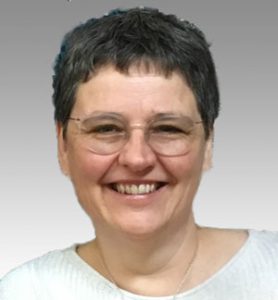 We are delighted to announce that Celeste Salter has recently taken over the role of Research Co-ordinator for the Aurum Project. We sat down with her to find out a little bit more about Celeste and why she decided to accept the role.
We are delighted to announce that Celeste Salter has recently taken over the role of Research Co-ordinator for the Aurum Project. We sat down with her to find out a little bit more about Celeste and why she decided to accept the role.
Celeste is a practicing Homeopath, living and working in the glorious Blue Mountains, just outside of Sydney. She found out about the opening of the role and it spoke to her so much, she felt wonderfully compelled to apply for it. With her scientific background and her current homeopathic focus, it looked like the perfect opportunity to integrate her extensive experience and knowledge base from past and present roles.
Celeste sees the current position of homeopathy in Australia as an exciting opportunity for homeopathy. She said: “Homeopathy in Australia is in the middle of the ocean at the moment; it can go in many different directions – and in the middle of this is the Aurum Project.”
We will be working with Celeste to develop relationships with organisations within and outside Australia to build the momentum we need to further develop our research program. She is excited to look for strategic connections and collaboration opportunities.
Celeste is incredibly focused on what needs to be done and where best to spend her time. She is a keen communicator and has made a commitment to keep everyone up to date about our research projects and all the stages we will be going through to get results.
Since you’re here…
More people than ever before are reading The Aurum Project blog. There is a surge of interest in natural therapies research. But grants or support from funding bodies is hard to come by. So you can see why we would like to ask for your help. The Aurum Project is an Australian independent research group with charity status. Our research takes a lot of time, money and hard work to keep pushing forward. But we love it because we believe our work is important and we’ve been told by parents over and over again that they believe what we do is important too. For a donation of for example, $50 per month you can help support us to produce top quality peer reviewed scientific data for the community.
All donations are tax deductible. It will only take a minute. Thank you. Click here to donate today.
